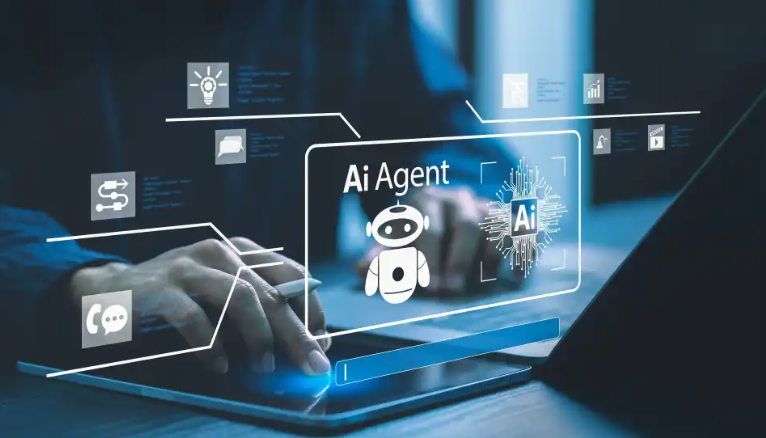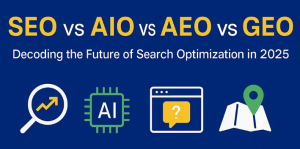In the rapidly advancing digital era, the AI Agent Phone has emerged as a transformative force in business communication. For professionals in sales and customer support, understanding and leveraging this technology is no longer optional—it's essential for survival and growth. This comprehensive guide delves into every facet of AI Agent Phones, providing you with the insights and strategies needed to excel in 2025 and beyond.
What is an AI Agent Phone? Unpacking the Core Concepts
An AI Agent Phone is a sophisticated software solution that utilizes artificial intelligence, natural language processing (NLP), and voice synthesis to conduct human-like phone conversations. Unlike traditional Interactive Voice Response (IVR) systems that rely on rigid menus, AI agents can understand context, maintain the flow of conversation, and respond naturally to a wide array of inquiries. These intelligent systems are designed to handle customer calls autonomously, offering support, qualifying leads, and even processing transactions without human intervention. By 2025, it's predicted that 95% of all customer interactions will be powered by AI in some form.
Key terminology in this space includes “conversational AI,” “voicebots,” and “virtual agents.” At its core, the basic principle is to simulate human conversation to provide efficient and personalized customer service. This is achieved through a combination of speech-to-text conversion, natural language understanding to decipher intent, and text-to-speech to deliver a response.
The Undeniable Benefits of AI Agent Phones: A Data-Backed Perspective
The adoption of AI Agent Phones brings a multitude of advantages that are both measurable and impactful. Businesses that have integrated this technology report significant improvements across various key performance indicators.
One of the most significant benefits is substantial cost savings. By automating routine tasks, businesses can reduce operational costs by up to 60%. Some companies have even reported saving millions by deflecting thousands of support tickets. The average cost of a chatbot interaction is around $0.50, compared to $6.00 for a human agent, representing a 12-fold difference.
Another key advantage is the boost in operational efficiency. AI agents can handle large call volumes simultaneously, reducing wait times and increasing first-call resolution rates by up to 30%. This 24/7 availability ensures that customer inquiries are always addressed, regardless of time zones or holidays. This leads to a significant increase in the number of customer inquiries handled per hour and can save service representatives an average of 1.2 hours daily.
Furthermore, AI Agent Phones lead to enhanced customer satisfaction and personalization. By accessing and analyzing customer data in real-time, these agents can provide tailored interactions, addressing customers by name and referencing past conversations. This level of personalization, coupled with immediate response times, contributes to a more positive customer experience. In fact, 83% of customers expect an instant response when they reach out to a company.
A Step-by-Step Guide to Implementing AI Agent Phones
Successfully implementing an AI Agent Phone system requires a strategic approach. Here are the essential steps to guide you through the process:
-
Define Your Business Objectives: Clearly outline what you aim to achieve with an AI agent. Whether it's reducing call wait times, increasing lead qualification, or providing after-hours support, having clear goals is crucial.
-
Choose the Right Technology Partner: Select a vendor that aligns with your specific needs and can integrate seamlessly with your existing systems, such as your CRM and calendar. Many platforms now offer no-code or low-code solutions, making it easier for businesses without extensive technical expertise to get started.
-
Train Your AI Agent: The intelligence of your AI agent depends on the data it's trained on. Provide it with comprehensive information about your products, services, and common customer inquiries to ensure it can handle conversations accurately.
-
Develop Conversation Scripts and Flows: Create a set of initial scripts for various scenarios, including greetings, handling common questions, and escalating to a human agent when necessary. Modern platforms allow for the creation of dynamic and flexible conversation flows.
-
Test and Refine: Before a full-scale launch, conduct thorough testing with internal users to identify any issues and gather feedback. Continuously monitor the agent's performance after launch and use analytics to make improvements.
Overcoming the Challenges of AI Implementation
While the benefits are clear, implementing AI in customer service is not without its hurdles. One of the primary challenges is ensuring data quality and hygiene. AI systems are only as good as the data they are trained on, so disorganized or inaccurate data can lead to poor performance.
Integration with existing legacy systems can also be complex and costly. Companies must ensure that their new AI solutions can communicate effectively with their current IT infrastructure.
Furthermore, there can be resistance from employees who may fear job displacement. It's important to frame AI as a tool to augment human agents, freeing them up for more complex and strategic tasks, rather than a replacement. Addressing these concerns through transparent communication and training is key to successful adoption.
Finally, data privacy and security are paramount. Handling sensitive customer information requires strict adherence to regulations like GDPR.
Traditional Call Center vs. AI-Powered Contact Center: A Comparative Look
| Feature | Traditional Call Center | AI-Powered Contact Center |
| Availability | Limited to business hours | 24/7/365 |
| Scalability | Limited by human resources | Highly scalable to handle fluctuating call volumes |
| Cost | High operational and labor costs | Significantly lower operational costs |
| Consistency | Varies depending on the agent | Uniform and consistent service quality |
| Personalization | Limited to agent's knowledge and CRM access | Deeply personalized based on real-time data analysis |
| Efficiency | Slower response and resolution times | Faster call handling and first-contact resolution |
| Data Insights | Manual data collection and analysis | Automated data collection and actionable insights |
Recommended AI Agent Phone Products for 2025
The market for AI Agent Phones is growing rapidly, with several innovative solutions available. Here are a few notable products:
-
Synthflow AI: Known for its powerful visual editor that allows for the automation of entire workflows without coding knowledge. It offers over 130 integrations with popular platforms like Salesforce and HubSpot.
-
Bland AI: A developer-focused platform that excels in creating conversational AI agents capable of complex interactions.
-
Google Cloud Dialogflow: A robust platform from Google that provides natural language understanding and can be integrated with various telephony systems.
-
Aircall: A cloud-based phone system with AI capabilities that offers intelligent routing and real-time analytics, making it a strong choice for sales and support teams.
-
Lindy: A no-code platform that enables users to build conversational flows for tasks like appointment booking, lead qualification, and customer support automation.
Frequently Asked Questions (FAQ)
1. Will AI Agent Phones replace human agents entirely?
No, the consensus in the industry is that AI will augment human agents, not replace them entirely. AI is best suited for handling routine, repetitive tasks, which frees up human agents to focus on more complex, emotionally nuanced, and high-value interactions.
2. How secure are AI Agent Phones with customer data?
Reputable AI Agent Phone providers prioritize data security and comply with regulations like GDPR and HIPAA. It is crucial to choose a vendor with robust security protocols, including data encryption and secure data handling practices.
3. How quickly can a business see a return on investment (ROI) from implementing an AI Agent Phone?
The ROI can be realized relatively quickly. With significant reductions in operational costs, increased efficiency, and improved customer satisfaction, businesses can see positive returns within months of implementation. Statistics show an average return of $3.50 for every $1 invested in AI for customer service.
Recommended Audience
This guide is particularly beneficial for:
-
Sales and Customer Support Leaders: VPs, Directors, and Managers looking to optimize their team's performance, reduce costs, and improve customer experience.
-
Small and Medium-Sized Business Owners: Entrepreneurs who want to leverage technology to provide excellent customer service without a large support team.
-
IT and Operations Professionals: Individuals responsible for implementing new technologies and ensuring seamless integration with existing systems.
-
Marketing Professionals: Marketers focused on lead generation and qualification who can benefit from automated outreach and follow-up.








